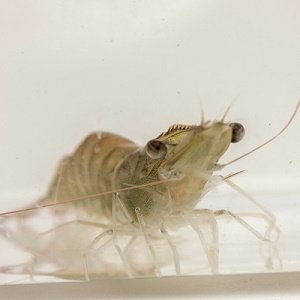
The excessive use of antibiotics has become a major global health problem, leading to the development of antibiotic resistance and disrupting the delicate balance of the human and animal gut microbiome. Fish are susceptible to antibiotic-induced dysbiosis, a condition characterized by an imbalance in the composition and function of the intestinal microbiota. This disruption can have severe consequences for fish health, including poor digestion, reduced growth, and increased susceptibility to diseases.
In this study, researchers from Tianjin Agricultural University (China) and South China Normal University investigated the efficacy of Fecal Microbiota Transplantation (FMT) in restoring the gut microbiota of koi carp affected by florfenicol-induced dysbiosis. They compared the results of FMT with natural recovery.
The Impact of Antibiotics on Fish
The excessive use of antibiotics can significantly alter the composition and diversity of fish gut microbiota. This may lead to the reduction of beneficial bacterial taxa, which play crucial roles in digestion, nutrient absorption, and immune function. Additionally, antibiotic use can create opportunities for the growth of pathogenic bacteria, leading to secondary infections.
Florfenicol, a widely used antibiotic in aquaculture, can significantly alter the gut microbiota of koi carp. Studies have shown that prolonged exposure to florfenicol can lead to a reduction in beneficial bacterial genera such as Lactobacillus, Bifidobacterium, Bacteroides, Romboutsia, and Faecalibacterium. These bacteria play a crucial role in maintaining intestinal health by aiding digestion and preventing pathogenic infections.
In addition to microbial imbalances, florfenicol can also cause damage to the intestinal mucosa of fish. This damage can impair nutrient absorption and increase the risk of secondary infections.
The Role of Metabolites
Metabolites, the byproducts of microbial activity, play a vital role in maintaining gut health. Aromatic amino acids and glutathione-related compounds are examples of key metabolites that are often depleted in fish with antibiotic-induced dysbiosis. These metabolites are involved in various biological processes, including antioxidant defense, immune function, and neurotransmitter synthesis.
Fecal Microbiota Transplantation (FMT)
Fecal microbiota transplantation (FMT) is a therapeutic approach that involves transferring fecal matter from a healthy donor to a recipient with dysbiosis. This technique has been successfully used in humans to treat recurrent Clostridioides difficile infections and other gastrointestinal disorders.
The researchers administered florfenicol to koi carp to induce dysbiosis. Some fish were treated with FMT, while others underwent natural recovery. The researchers analyzed the gut microbiome, fecal metabolome, and histological characteristics of these fish to assess the effects of florfenicol and fecal microbiota transplantation.
Key Findings
The study results demonstrated that FMT was significantly more effective than natural recovery in restoring microbial populations, repairing intestinal damage, and normalizing critical metabolites. FMT was able to rapidly repopulate the gut with beneficial bacteria, leading to a more balanced microbiota.
Stay Always Informed
Join our communities to instantly receive the most important news, reports, and analysis from the aquaculture industry.
According to the study’s correlation analyses, strong associations exist between the identified bacterial genera and the levels of aromatic amino acids and glutathione-related metabolites. This suggests that these bacterial populations play a crucial role in the production and regulation of these essential metabolites.
Implications for Aquaculture
The findings of this study highlight the potential of fecal microbiota transplantation (FMT) to counteract antibiotic-induced dysbiosis in koi carp. By restoring the gut microbiota and normalizing key metabolites, FMT can enhance fish health, improve growth performance, and reduce the need for antibiotic treatments.
Moreover, this research provides a foundation for developing customized probiotic therapies for fish. Probiotics containing specific bacterial strains identified in this study could be used to supplement aquaculture feeds and promote gut health.
Conclusion
Antibiotic-induced dysbiosis in koi carp can have significant adverse effects on fish health. Fecal microbiota transplantation offers a promising approach to restoring gut microbiota and promoting recovery. By understanding the key bacterial populations and metabolites involved in this process, researchers can develop targeted probiotic therapies to support fish health and sustainability in aquaculture.
Contact
Jingfeng Sun
Key Laboratory of Smart Breeding (Co-construction by Ministry and Province), Ministry of Agriculture and Rural Affairs, Tianjin Agricultural University, Tianjin, China
Tianjin Key Laboratory of Aqua-ecology and Aquaculture, Fisheries College, Tianjin Agricultural University, Tianjin, China
Email: sun_jf@163.com
Reference (open access)
Han, Z., Sun, J., Jiang, B. et al. Fecal microbiota transplantation accelerates restoration of florfenicol-disturbed intestinal microbiota in a fish model. Commun Biol 7, 1006 (2024). https://doi.org/10.1038/s42003-024-06727-z
Editor at the digital magazine AquaHoy. He holds a degree in Aquaculture Biology from the National University of Santa (UNS) and a Master’s degree in Science and Innovation Management from the Polytechnic University of Valencia, with postgraduate diplomas in Business Innovation and Innovation Management. He possesses extensive experience in the aquaculture and fisheries sector, having led the Fisheries Innovation Unit of the National Program for Innovation in Fisheries and Aquaculture (PNIPA). He has served as a senior consultant in technology watch, an innovation project formulator and advisor, and a lecturer at UNS. He is a member of the Peruvian College of Biologists and was recognized by the World Aquaculture Society (WAS) in 2016 for his contribution to aquaculture.







